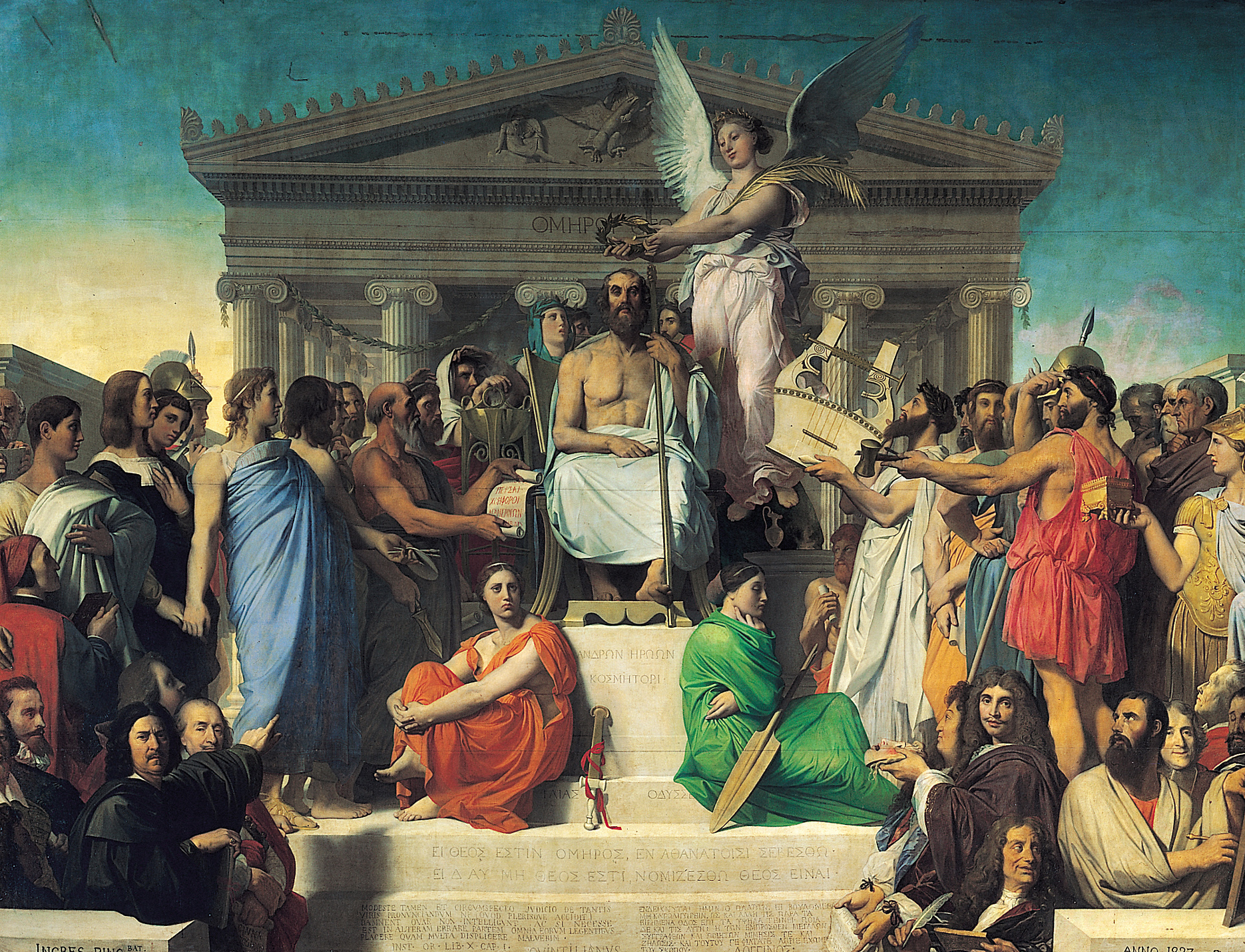More actions
m Tweak. |
m Tweaked language. |
||
| Line 3: | Line 3: | ||
{{Large|Discovering the Literary Legacy of Ancient Greece and Rome.}} | {{Large|Discovering the Literary Legacy of Ancient Greece and Rome.}} | ||
{{dc|W}}{{Big|elcome to World Literature I! In this course, we will | {{dc|W}}{{Big|elcome to World Literature I! In this course, we will explore the rich and enduring literature of the ancient Greeks and Romans, with a focus on two of the most influential genres of the period: epic poetry and tragedy.}} {{More}} | ||
<div class="res-img"> | <div class="res-img"> | ||
Latest revision as of 10:14, 10 April 2024
Discovering the Literary Legacy of Ancient Greece and Rome.
Welcome to World Literature I! In this course, we will explore the rich and enduring literature of the ancient Greeks and Romans, with a focus on two of the most influential genres of the period: epic poetry and tragedy.
Through close readings of texts such as Homer’s Iliad and Odyssey, and works by tragedians such as Sophocles and Euripides, we will explore the themes, conventions, and cultural context of these genres, and how they continue to shape our understanding of the ancient world.
In addition to our core readings, we will also discuss the historical and cultural context of ancient Greece and Rome, and consider the enduring influence of these civilizations on the literature and culture of the modern world. By the end of the course, students will have a deeper appreciation and understanding of the literature of ancient Greece and Rome, and its enduring significance.
Introduction
The document you’re reading is your syllabus. Everything you need for this class is on this page and linked off of it. The tabs above access the major portions of the syllabus. Bookmark this page now and return here if you get lost or confused.[1] Use the tabs above to navigate to the various sections of the syllabus.[2]
Before you begin, take a moment and familiarize yourself with the general resources I have for students. All of these may be found in the “For Students” menu at the top of the page, or you can just begin on the student start page. These pages are designed to help you succeed in this class. While you may not read everything, you should know what’s available if you need it.
Please read this document and those it links to carefully at the beginning of the semester. There is much information to process, and it can be somewhat daunting — especially if you read cursorily. If you are confused, do your best to work through it by (re)reading this document carefully and completely, searching this site, or consulting the FAQ. I promise, there is an answer to your question. If all else fails, you may contact me. Trust yourself to follow directions and find the answers. Be careful and deliberate.
notes
- ↑ While you may certainly choose to print it—we will do our best to follow the schedule hereon—it may change during the course of the semester due to unforeseen circumstances. Should this occur, I will let you know, but ultimately, this online document has the final say—not a printed one.
- ↑ You might, too, follow links by opening them in browser tabs—click the link by holding the ⌘ Command on a Mac or Ctrl on a PC—so you can easily return to where you left off.
| 🕒 04-10-2024 | 📆 Make an Appointment | 💬 Ask a Question | 📣 Leave Feedback |


